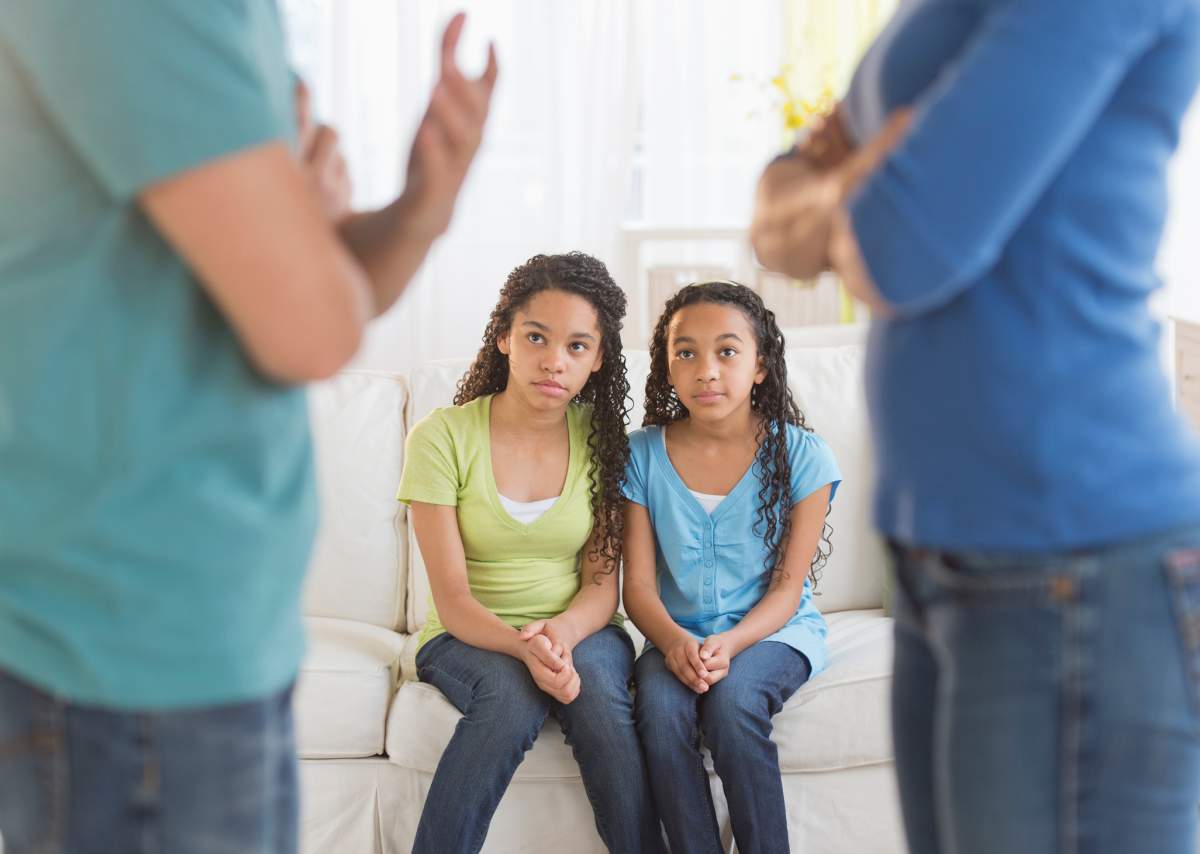How parents deal with family and marital conflict has an impact on their kids, a new study says.

According to researchers at the University of Arizona, parents who handle their disagreements or conflicts in a constructive way – meaning maintaining calmness and respect despite a difference in opinion – a child is likely to feel more safe and secure in the home.
Children of parents who handle conflict destructively (when there is anger and resentment and the argument often goes off topic), however, are more likely to feel insecure about their home life.
READ MORE: This is the best living situation for preschool children of divorce: study
“Children are very good at picking up on little nuances of how parents interact with each other, so it really matters how parents express and manage their daily life challenges because that determines children’s confidence in the stability and safety of their family,” study author Olena Kopystynksa said in a statement. “If parents are hostile toward each other, even children as young as three years old may be threatened that their family may be headed toward dissolution. They may not necessarily be able to express their insecurities verbally, but they can feel it.”
Kopystynska’s study looked at the constructive and destructive styles of conflict management among parents and how their parenting styles impacted the emotional security of their children after exposure to conflict.
The study’s findings were based on national data from the Building Strong Families Project which focused on low-income families – a population researchers believed may have been high risk for conflict on account of the many stressors associated with financial strife. Participating parents were mostly unmarried and had just conceived their first child at the start of the project.

Get daily National news
The study was broken down into three waves.
The first part looked at those with children under three years of age. Parents were surveyed about how they perceived their conflict management behaviours with one another and how their children reacted emotionally.
Researchers identified four types of parents: couples where both mother and father argued constructively; couples who argued destructively; couples where the mother was more constructive and the father destructive and couples where the father was more constructive and the mother destructive.
After observing, researchers found that fathers’ parenting styles did not appear to be impacted by how they managed conflict with their partners – this means the father interacted with their children similarly across all profiles.
However, when mothers handled conflict destructively with fathers who handled conflict constructively, it was the mothers who tended to be harsher with their kids than in the profile when both mothers and father were constructive.
Children also tended to be more emotionally secure if one parent was constructive while another was destructive.
So the more constructive parents were, the more secure their children were.
Another finding worth noting was the fact that despite the common notion that low-income families tend to be at a higher risk for dysfunctional behaviours, very few couples who participated in the study were “entirely destructive” when managing conflict.
Kopystynska hypothesizes that that might be the case because parents in the destructive group were less likely to stay together.
“Parents who were in the concordant destructive group were less likely to stay together, so they were probably not in the same home, so children were probably not exposed to that inter-parental conflict,” she says. “Not all conflict is bad – it’s about how you manage it. Given that children are going to encounter conflict out there in the real world, exposure to some conflict can be beneficial. However. It’s really important how parents handle that conflict that sets the tone for how safe children feel, and may further promote similar conflict management behaviours for when children are confronted with conflict on their own.”
READ MORE: Step-parenting advice: How to navigate a new blended family
Parenting expert Alyson Schafer isn’t surprised by the study’s results and agrees with its findings.
“I did think it was interesting seeing the mother versus father, and only one of them had a bad conflict style,” Schafer says. “It often seems that the mother is the one that kids seem to care the most about.”
According to Schafer, parents need to set a good example for their children, even when it comes to showing them how they should handle conflict management.
“The frame that I always want to give parents is to think of themselves as being an educator,” she says. “Conflict is inevitable – it’s a part of life. So ask what are our kids learning about conflict and how to resolve it – what are they seeing from what I’m modelling in front of them?”
And while parents may not see the big deal or doesn’t think it has an impact on their child, it’s important to understand that kids understand and interpret conflict differently because developmentally they’re egocentric, Schafer explains.
“They personalize everything,” she says. “They will often come to believe that they’re the reason their parents are not getting along and they project it into the future and think that if the parents are fighting like this, then their home is not stable and think they’re going to break up.”
So the best advice Schafer can give parents in these circumstances is to be mindful of their children.
“Be mindful that your kids are watching you,” she says. “And if you got something that you need to discuss that you know is contentious and not the business of children, then schedule those conversations for a time when you have a little more privacy.”












Comments